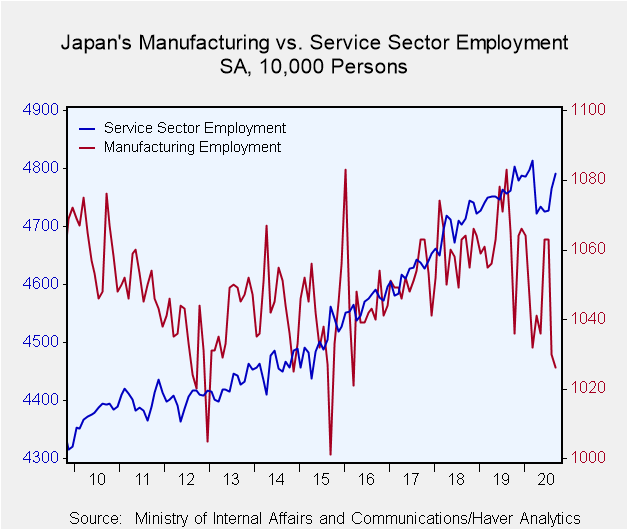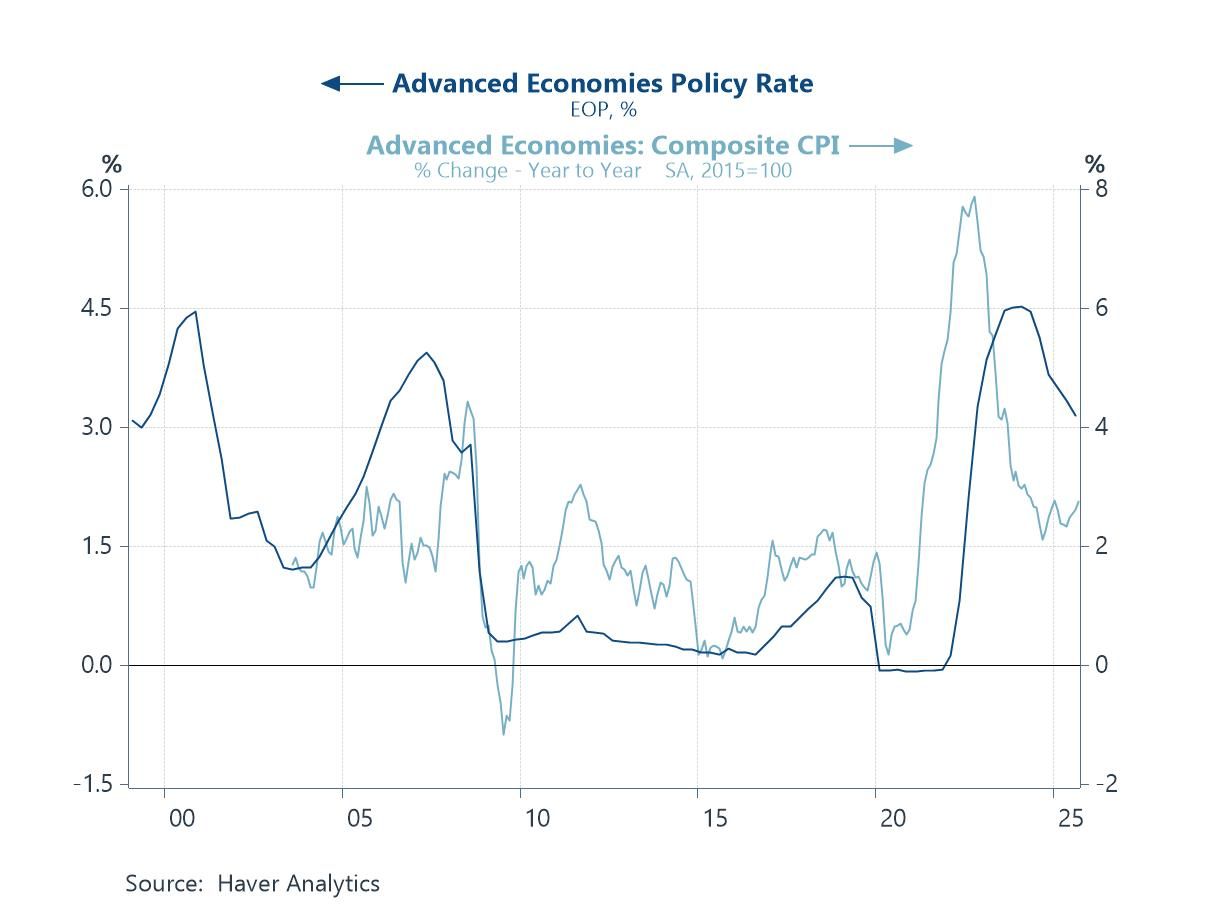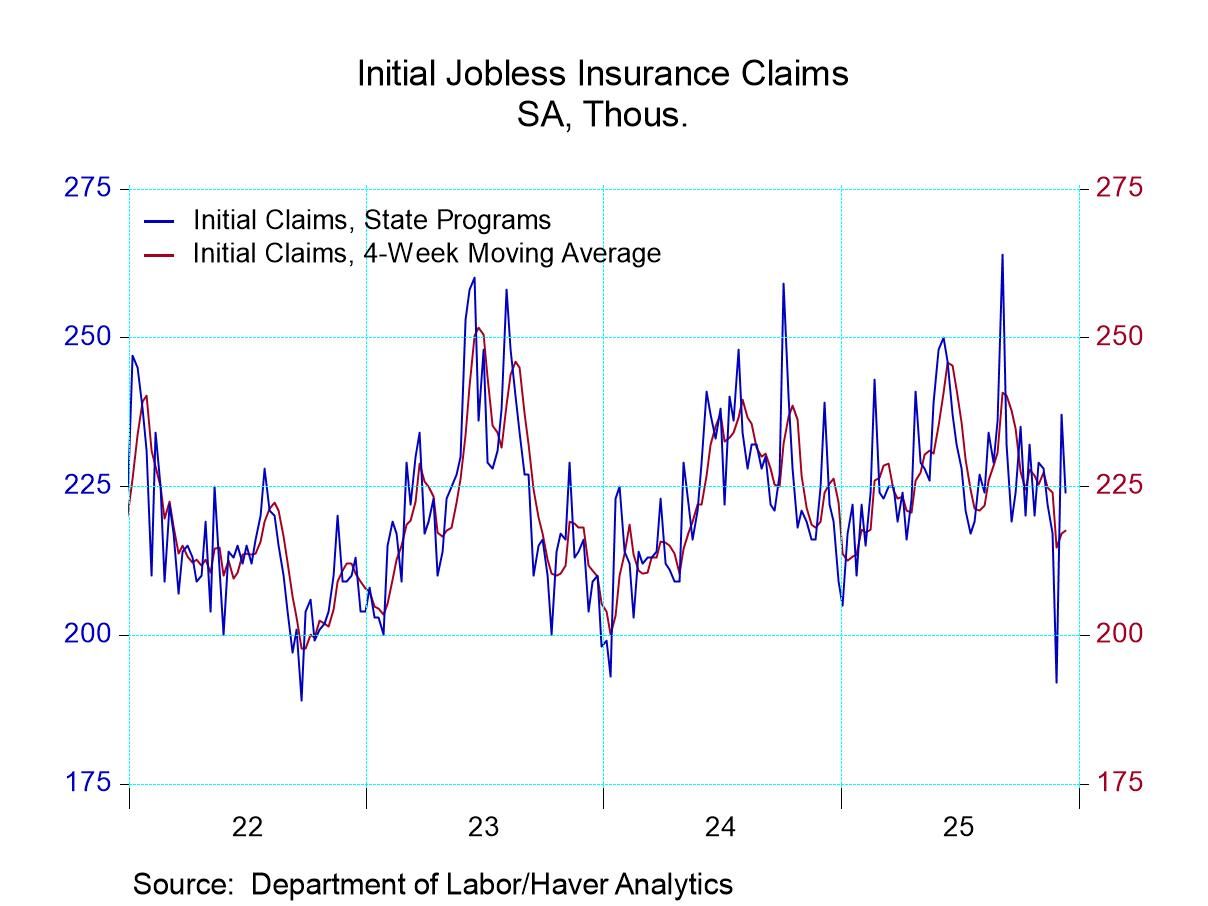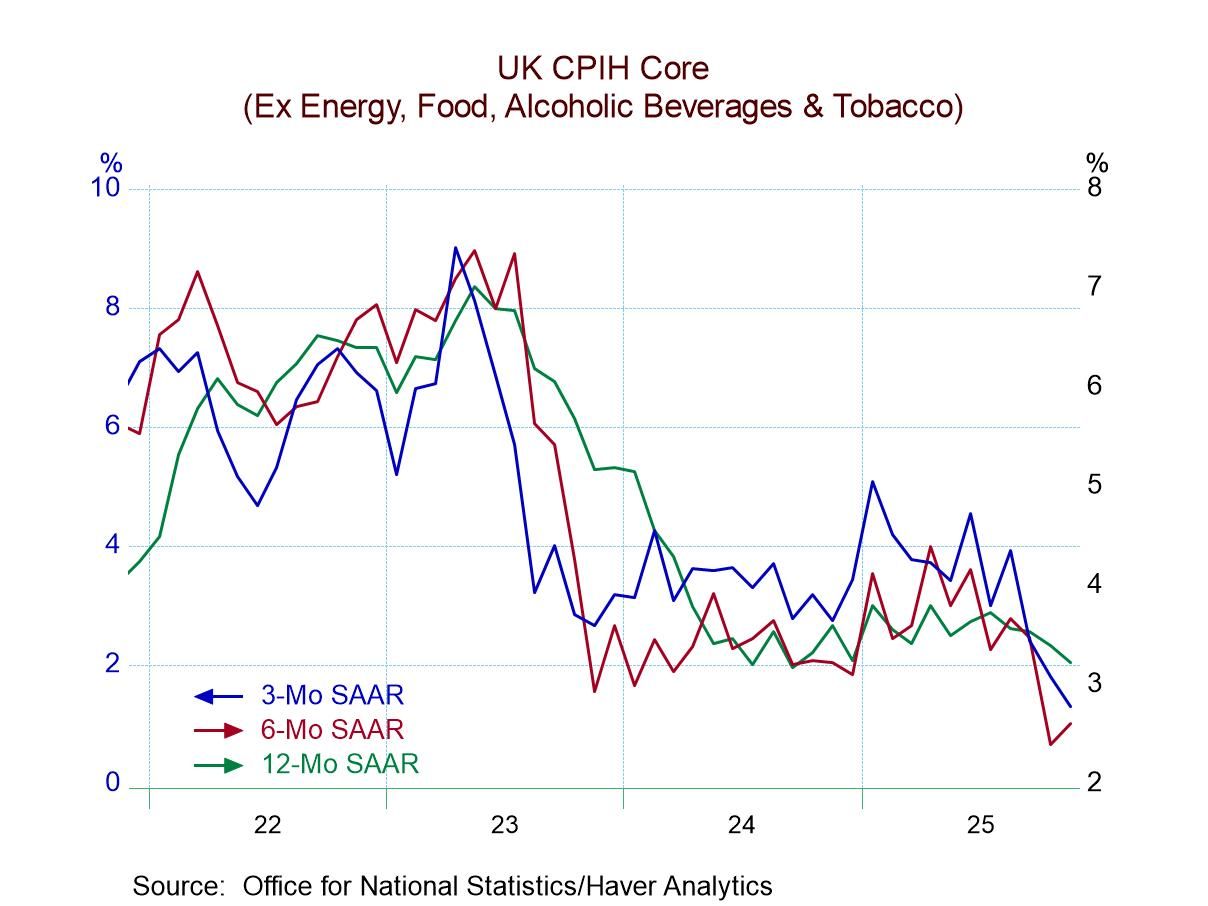 Global| Nov 25 2020
Global| Nov 25 2020Japan's Employment Makes Partial Recovery
Summary
With a third wave of infection coursing its way through Japan's economy, the labor market continues to make some progress. Japan's infections peaked in April, August, and now, again, in November. The new case count has soared to an [...]
 With a third wave of infection coursing its way through Japan's economy, the labor market continues to make some progress. Japan's infections peaked in April, August, and now, again, in November. The new case count has soared to an even higher peak in November. And while Japan's number of infections is not as great as in other countries, they are nonetheless debilitating as Japan is quite sensitive about outbreaks in a country with such high population density overall and in its major cities.
With a third wave of infection coursing its way through Japan's economy, the labor market continues to make some progress. Japan's infections peaked in April, August, and now, again, in November. The new case count has soared to an even higher peak in November. And while Japan's number of infections is not as great as in other countries, they are nonetheless debilitating as Japan is quite sensitive about outbreaks in a country with such high population density overall and in its major cities.
Job growth took a minor step back in September, but that keeps the three-month gain for July, August and September in place as a counterpoint to the previous three-month drop recorded in June. There were job losses recorded in September in manufacturing, government, and other services (n.e.c.) -- a few sector drops but nothing widespread.
The manufacturing sector in Japan has been somewhat 'against the grain' as it gained jobs April to May to June while overall employment in Japan fell. Now July August to September, manufacturing is losing jobs as the economy logs overall gains.
Looking at how the economy is doing since employment began to shrink in April, we find that overall employment is 1.1% lower in September than in March of this year. Compared to one year ago, employment is 1.1% lower. This compares to gains of 0.7% per year over the last five years. The virus has caused a clear step down in employment conditions. Compared to March, the unemployment rate is 0.5 percentage points higher. Compared to a year ago, it is 0.6 percentage points higher. Compared to five years ago, it is 0.4 percentage points lower. Japan has not had the kind of dislocation in its labor market that the U.S. has seen. But average monthly earnings in Japan are lower than in March despite some wage spring-back in September.

The virus is still calling the tune for Japan where growth is walking on eggshells in an economy with high population density. But Japan has been able to push jobs growth ahead and while there is a decline in employment since March, it is modest and since then there has been job market progress. Japan's unemployment rate has not gyrated like in the U.S. either. The service sector and manufacturing sector have been acting very differently over the last two quarters in some sense buffering the impact of one another.
But Japan is trying to get back to normal. Japan and China are going to cooperate in fighting their virus issues. They have set up a program under which business travel between the two countries can resume. It will allow for some 'limited' business activities by travelers within their 14-day quarantine periods. This is an example of Japan doing its best to get its economy back in gear ultimately to revive tourism and also with determination to make the country safe to host the Olympics at midyear as the games already have been postponed once.
Robert Brusca
AuthorMore in Author Profile »Robert A. Brusca is Chief Economist of Fact and Opinion Economics, a consulting firm he founded in Manhattan. He has been an economist on Wall Street for over 25 years. He has visited central banking and large institutional clients in over 30 countries in his career as an economist. Mr. Brusca was a Divisional Research Chief at the Federal Reserve Bank of NY (Chief of the International Financial markets Division), a Fed Watcher at Irving Trust and Chief Economist at Nikko Securities International. He is widely quoted and appears in various media. Mr. Brusca holds an MA and Ph.D. in economics from Michigan State University and a BA in Economics from the University of Michigan. His research pursues his strong interests in non aligned policy economics as well as international economics. FAO Economics’ research targets investors to assist them in making better investment decisions in stocks, bonds and in a variety of international assets. The company does not manage money and has no conflicts in giving economic advice.






